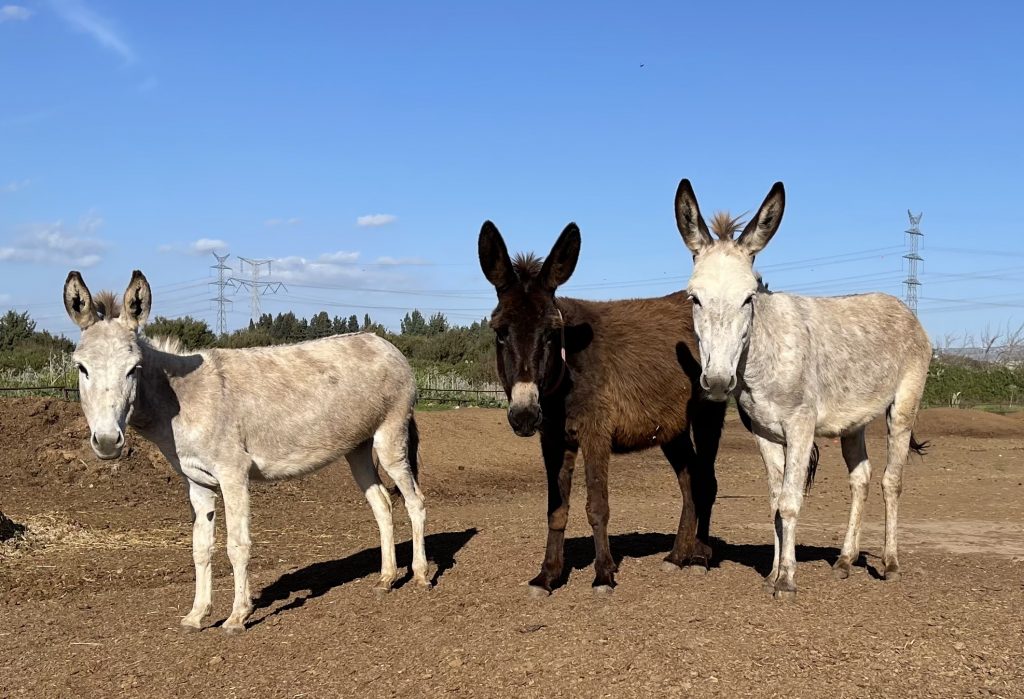
Gerald Taylor is CCA’s Membership and Donor Manager. He is a former lecturer and researcher in Politics and Government and has worked at La Sainte Union College, Southampton and the University of Glamorgan. He has been active in local political and social groups and has created non-profit organisations to improve the quality of media and debate on the internet.
Oh God, enlarge within us the sense of fellowship with all living things, our brothers the animals to whom Thou gavest the earth in common with us. We remember with shame that in the past we have exercised the high dominion of man with ruthless cruelty so that the voice of the earth, which should have gone up to thee in song, has been a groan of travail.
Prayer of Saint Basil, c. 375, quoted in Scully, p.13.
Defining our terms is something few of us do. Concepts like justice, freedom, truth, and so on are bandied about but rarely, if ever, defined. Dominion is another one, look it up in online dictionaries and you will see in definitions terms like control, authority, governance, sovereignty, each of which is a conceptual minefield in its own right. How perplexing, then, that this ambiguous and uncertain term should be the one to describe our relationship with every other living creature, indeed, in effect, with the rest of creation as a totality.
Maybe one way to tackle this is to ask whether our behaviour towards creation is measuring up to a good practice of dominion. Okay, so with dominion itself being defined in social governance terms maybe this is a starting point? One of the earliest writers on government and leadership was Xenophon, the Greek adventurer who wrote the Education of Cyrus around 370 BC. For Xenophon good leadership was based on self-sacrifice and putting those you ruled above yourself, ensuring that their desires were met at least equally with, if not ahead of, your own as a leader.
Perhaps this view doesn’t well represent human government these days, although a trace of the sense of duty and responsibility it implies can maybe still be seen amongst some members of the Royal family, and a sense of togetherness is often rhetorically thrown out by our politicians to appeal to such concepts. Can we
say we treat creation as Xenophon suggested? As Scully points out in the Introduction to his book on this subject, those who deal most closely with animal welfare, farmers, are seen as ‘growers’, with ‘mass confinement facilities’ serving their ‘processing plants’ where they keep their ‘production units’. A similar point with respect to fisheries has been made by the researcher Daniel Pauly. This objectification of creation means that human measures of our impact can be suspended.
For example, for Hilborn in his book on overfishing, overfishing is associated with economic consequences and can be measured economically in factors like boat maintenance to determine an ‘optimum’ level of fishing. If we allow ecological factors into consideration then we are asking for trouble, he suggests:
“Related to any form of fishing is the ecological or ecosystem impact. Yet in that context there is no “optimal” level because, obviously, the actual number of fish in an ecosystem will decline continuously with increased fishing pressure; thus any amount of fishing can be said to be “ecosystem” overfishing, and to achieve the least possible impact means no fishing whatsoever”. Hilborn, p.3.
Personally, I quite like the sound of that.
John Locke is the political philosopher most associated with the idea of property rights and economic improvement. What Locke argues is that government exists to support those who are improving the productivity of their land and therefore increasing total wealth. Of course, Locke was living at a time when available land, to white, European conquerors, was expanding in North America, Australasia and elsewhere, land to develop and make profitable seemed inexhaustible. Nowadays, as Philip Lymbery observes in his forthcoming book, the industrial farming of the land has left us in a situation where many soil analysts believe we have merely sixty harvests left before we lose the Earth’s soil to erosion, at which time I guess we change our planet’s name to Stone and learn to eat lichen.
In Victorian times Marx identified economic conflict as the source of all human conflict, however it might at any time be expressed or narrated. Certainly, our view of creation, of the natural world which we share with so many others, has been almost entirely shaped by the lens of economic advantage, short-term and temporary. As a result, we stand on the edge of destroying the very creation over which we were given dominion. Surely, we can no longer rely on the delusional belief that climate change is a myth, and even if it is not, that we are not responsible for these changes?
The exercise of our dominion has not been particularly glorious. Is this what was intended when God gave us dominion? Is this what we will have to defend when we are asked what we have done with His creation?
We chose to see dominion in terms of power over nature, but for all philosophers of political dominion in our society, from Xenophon onwards, it has always implied responsibility. We have a responsibility towards creation. We have been given dominion to ensure that creation flourishes, in this we have failed. If we are to ensure our own survival and replace the ‘groan of travail’ with the song of the Earth, in harmony with all creation, we must turn from self-absorbed tyranny and take on the awesome responsibility of loving dominion over the creation of which we are part.
References:
Hilborn, Ray (2012), Overfishing, Oxford University Press
Locke, John (2016), Second Treatise of Government and a Letter Concerning Toleration, Oxford University Press
Marx, Karl (2000), Selected Writings, ed David McLellan, Oxford University Press, 2nd edn.
Pauly, Daniel (2019), Vanishing Fish, Greystone Books
Scully, Matthew (2011), Dominion, Souvenir Press
Xenophon (2005), Education of Cyrus, Oxford University Press

